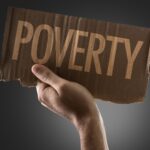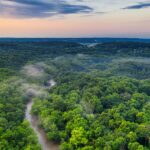In 2000, the United Nations' Member Countries agreed to focus aid and development activities on 7 Millennium Development Goals (MDGs) related to some of the biggest global problems facing mankind such as Poverty, Hunger, Maternal Health etc. Whilst significant progress was made in some of these areas by 2015 (eg poverty rate was halved), this was achieved because, for the first time, collective efforts and resources were focused on addressing the same major gaps in human development.
MDGs proved that collective, targeted action can be effective
These successes raised hope that something amazing might be done if the whole World was mobilised to work together on the key issues. However, despite the successes of the MDGs in some important areas, much still remained to be done. In some regards (eg Climate Change), the problem has become worse and more urgent in the intervening years!
In September 2015 World Leaders agreed to replace the MDGs with the more comprehensive Sustainable Development Goals (SDGs). These "17 SDGs" are being implemented during the years 2016-2030 and build on the work already done under the MDGs.

These SDGs are much broader in their scope (ie 17 goals instead of just 7 MDGs). They seek to eradicate Poverty, fight Inequalities, protect the Planet, promote Prosperity and Partnerships. For convenience, the 17 SDGs are grouped into 5 sub groups related to People, Planet, Prosperity, Peace & Partnerships - known as the "5Ps".
Unfortunately, the SDGS are not legally binding on countries
It is up to individuals to hold their respective political leaders to account and ensure they follow through on their funding promises and commitments made at the United Nations. This can best be done by encouraging and motivating individuals, friends and families to start taking small Actions in their own day to day activities in support of the "SDGs" and to push Local and National Politicians, including large corporations, to fulfil the commitments they have made.Sadly the COVID pandemic has eroded some of the successes that had been achieved since 2015 so it has now become even more urgent that we all do what we can to support Global efforts to address these problems that will otherwise make our Planet un inhabitable.
There is no Planet B!






